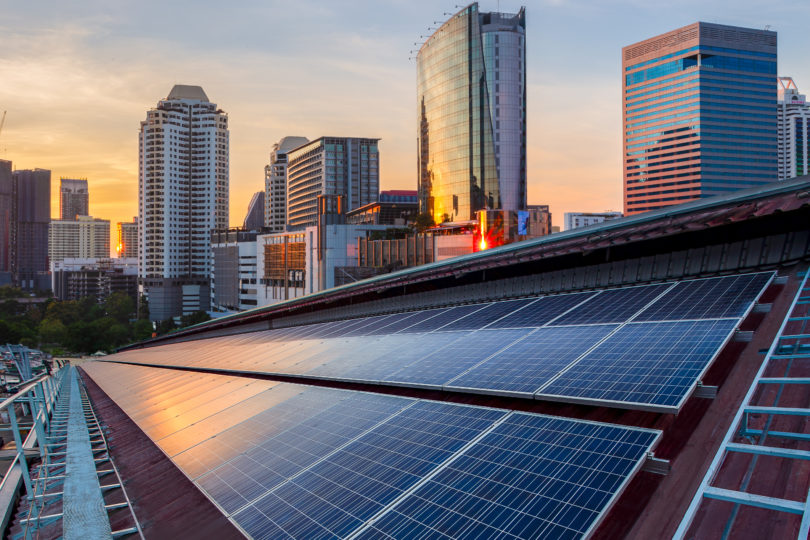Solar energy is becoming more and more popular, both for homes and businesses. If you have a small business but are still wondering whether or not to go solar, these five reasons should convince you.
1. Reduced energy bills
Research indicates that you should be able to pay off the initial cost of buying and installing solar panels in three to seven years. From then on, you will enjoy free energy as long as the solar system is functional.
The service life of most solar panels is 25 to 30 years. But that doesn’t mean that they stop producing electricity when these years elapse. Their output falls slightly, and you can still use them for a further 15 or so years.
When starting your solar project, it’s critical to know how much money you will be saving every month after making the switch to solar. Fortunately, the computations are quite easy if you use a solar savings calculator. This software allows you to input your current monthly grid electricity bills and instantaneously get the approximate monthly savings. This enables you to decide whether or not your planned solar project is worthwhile.
2. Renewable Power Incentives
According to the Australian Government’s Department of Industry, Science, Energy, and Resources, small businesses and households that install a solar energy system may receive financial assistance to help with the purchase costs. This is under the Small-Scale Renewable Energy Scheme (SRES), which was initiated in 2017, and is set to run up to 2030.
By installing solar panels, you get a Small-scale Technology Certificate (STC), which you can sell for cash to the Renewable Energy Target liable entities on a quarterly basis. The value of the STC depends on the amount of solar electricity your system generates and the climatic region where it’s installed. Note that this incentive also applies to other renewable energy systems, such as wind turbines, solar water heaters, hydro systems, and air source heat pumps.
3. Predictable energy bills
Grid electricity prices fluctuate from month to month due to factors like fuel prices, weather conditions, emerging government regulations, repair costs of transmission and distribution systems, and power plant operating costs. As such, your electricity bills are sometimes unpredictable. You might set aside an approximate amount of money based on the previous months’ bills only to have a sudden price hike throw you out of balance.
Once you install solar panels, you will only need to pay for maintenance procedures every so often. Australia’s Clean Energy Regulator proposes the following maintenance procedures:
- Cleaning the solar panels
- Ensuring the panels are still anchored securely
- Checking for corrosion of metallic components
- Freeing vents of debris
- Making sure no wiring has deteriorated
- Confirming all cables and fittings are securely attached
- Ensuring switches have no defects
- Checking the inverter display panel for encountered faults
With such a definite list, you can plan ahead, saving you money and reducing stress.
4. Increased public trust
Research reveals that up to 90% of Australian consumers are willing to pay more for sustainable products. More people want companies to be transparent about whether they are engaging in ethical practices, and they view ‘green’ business as caring and concerned about the wellbeing of society.
Going solar is an excellent step towards making your small business more eco-friendly. The production of solar electricity doesn’t release any greenhouse gases into the atmosphere, unlike other methods of electricity generation.
A typical small business solar energy system reduces carbon by about 1.3 to 1.6 tonnes.Not only will you gain customer trust, but also play a part in the reduction of climate change and conservation of the environment.
5. Increased property value
A recent study shows that buildings with solar panels have a higher value than similar ones without a solar system. Installation of solar energy is viewed as an upgrade in the same way as renovating the building’s exterior or interior finishes.
Therefore, if your business is located in a building that you own, the increased value increases your loan capacity, should you wish to borrow cash for the development of the company. And if you want to lease a part of the building, you will attract more high-paying clients. Further down the road, if you want to sell the building, you will appreciate the solar investment as it increases the sale price.
It’s time to go solar!
Take the bold step and start a solar project for your small business. Make sure to consult a sustainability professional for assistance in order to meet all your energy goals and needs.
You can choose between going totally off-grid or a hybrid system, wherein solar electricity is supplemented with power from the grid whenever the output from the panels isn’t enough to run your business. All in all, going solar is a wise choice that you will most likely appreciate.
“The opinions expressed by BizWitty Contributors are their own, not those of BizCover and should not be relied upon in place of appropriate professional advice. Please read our full disclaimer."







